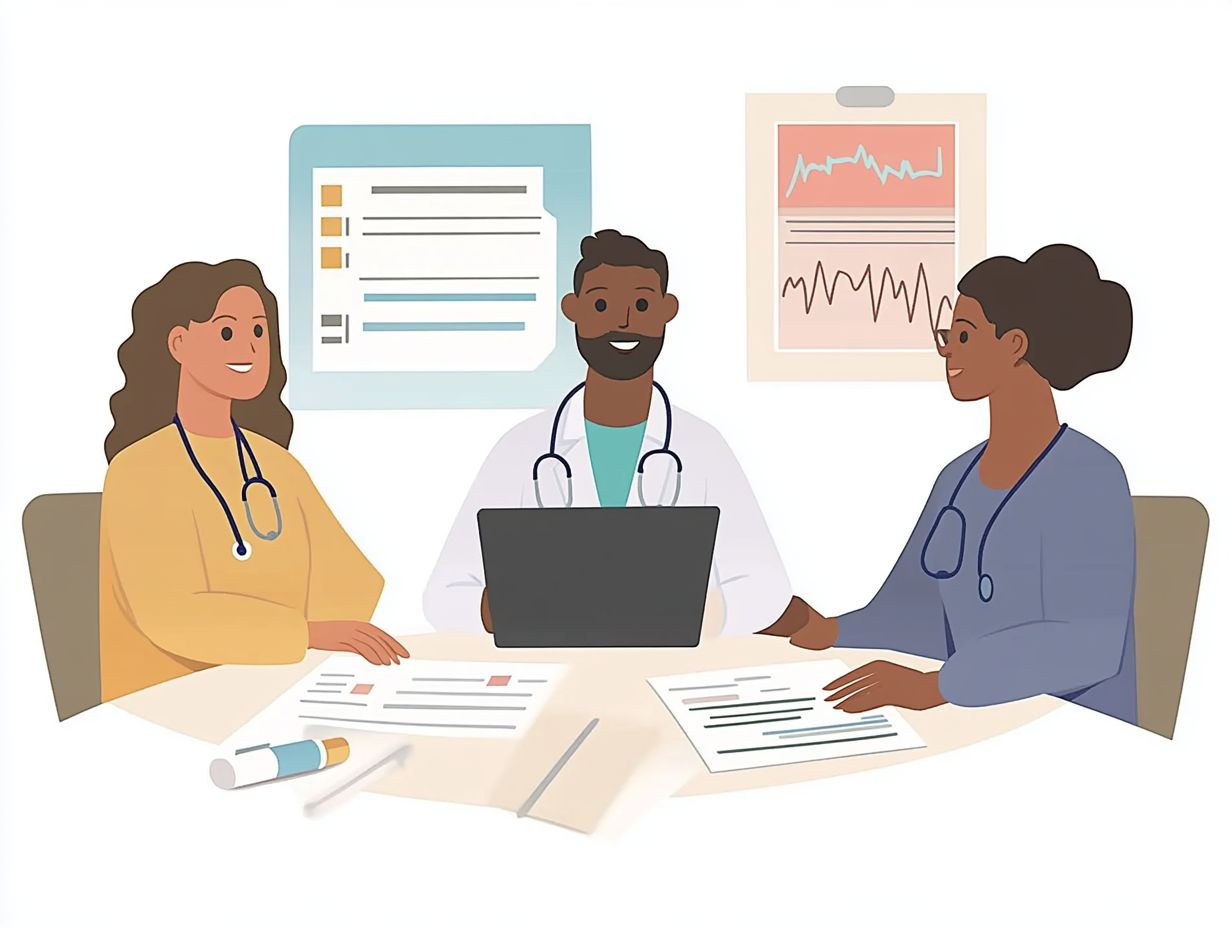Exploring the Defense of Informed Consent
This article will explore the definition, importance, and legal framework surrounding informed consent, highlighting the essential elements required for its validity. It also addresses the challenges and controversies that arise, delving into ethical dilemmas and criticisms that can emerge.
You ll discover best practices for obtaining consent, along with unique situations where standard protocols may adapt. Dive in to navigate this vital aspect of patient care.
Contents
- Key Takeaways:
- Understanding Informed Consent
- The Legal Basis for Informed Consent
- Elements of Informed Consent
- Challenges and Controversies Surrounding Informed Consent
- Ensuring Proper Informed Consent
- Informed Consent in Specific Situations
- Frequently Asked Questions
- What is the defense of informed consent?
- Why is informed consent important?
- What are the key elements of informed consent?
- What happens if a patient does not give informed consent?
- Are there any exceptions to informed consent?
- What can patients do if they feel their informed consent was not properly obtained?
Key Takeaways:

- Informed consent is a crucial aspect of healthcare, allowing patients to make informed decisions about their treatment and participate in their own care.
- The legal basis for informed consent is comprised of various laws and regulations that aim to protect patients’ rights and ensure their independence.
- Obtaining proper informed consent involves providing patients with key information, discussing potential risks and benefits, and addressing any concerns or questions they may have.
Understanding Informed Consent
Informed consent stands as a cornerstone of ethical practice in healthcare, ensuring you are fully aware of your rights, the nature of your involvement in health research, and any potential risks you may face.
It acts as a vital connection between healthcare professionals and patients, nurturing trust and transparency while protecting your privacy and control over your care.
This essential process holds particular weight in clinical trials and health records, where informed consent shapes the ethical standards of research and influences the accessibility of data and treatment planning tailored for participants.
In a time when medicalization is on the rise and socioeconomic disparities are glaring, grasping the concept of informed consent is crucial for achieving equitable healthcare delivery and meaningful participant engagement.
Definition and Importance in Healthcare
Informed consent is the process through which you voluntarily confirm your willingness to participate in a specific treatment or research after being thoroughly informed of all relevant details.
This procedure also enables you as a patient and acts as a foundational element for upholding ethical standards in healthcare. By ensuring clear communication and transparency, informed consent cultivates a sense of trust between you and your healthcare providers. Trust is vital; it encourages you to discuss your health concerns and beliefs openly.
Informed consent also addresses misunderstandings about treatment those moments when you might not fully grasp the nature or risks associated with a treatment. By clarifying these aspects, healthcare professionals enable you to make more informed choices, ultimately enhancing your sense of control over your own care.
The Legal Basis for Informed Consent
The legal basis for informed consent is rooted in well-established ethical guidelines and laws designed to protect participants in health research and healthcare environments.
This framework dictates how healthcare providers must obtain informed consent, ensuring that individuals are shielded from privacy breaches and fully informed about their rights and responsibilities.
Given the array of legal precedents and ethical standards, grasping the implications of informed consent is essential for maintaining the integrity of clinical trials and medical practices.
Relevant Laws and Regulations
Various laws and regulations shape the informed consent process, ensuring that you adhere to ethical guidelines and uphold medical ethics in health research and clinical settings.
These frameworks, such as the Common Rule and the Health Insurance Portability and Accountability Act (HIPAA), require that you provide participants with comprehensive information about the nature of the research, along with its potential risks and benefits.
They stress the importance of voluntary participation, granting individuals the right to withdraw at any time without facing penalties.
Such regulations not only build trust between you and the participants but also reinforce the principle of respect for independence, enabling individuals to make informed choices about their involvement in health research initiatives.
You deserve to know your rights! Discuss your healthcare concerns and seek further information about informed consent today.
Elements of Informed Consent

The elements of informed consent are essential for ensuring that consent is valid. They include a clear understanding, genuine voluntariness, and thorough disclosure of important information about treatment options.
What Must be Included for Consent to be Valid
For informed consent to be valid, you must receive thorough disclosure of relevant information, understand the associated risks and benefits, and voluntarily agree to participate.
This means you should be presented with comprehensive details about the study or procedure, including any potential impacts on your health and well-being. You must understand what is being asked of you and the implications of your choices.
Clear communication is vital. It allows you to discuss your rights and make informed decisions. Consent must be free from coercion, reinforcing that your participation is a personal choice made with a complete understanding of the facts.
Challenges and Controversies Surrounding Informed Consent
Challenges and controversies regarding informed consent often arise from ethical considerations and consent bias. These issues can erode trust between healthcare providers and patients, especially in sensitive areas like health research and clinical trials.
Therapeutic misconception can cloud a participant s understanding of risks, raising concerns about the validity of their consent. Therapeutic misconception refers to when participants mistakenly believe they will receive therapeutic benefits from a study, which can obscure their understanding of the risks involved.
The healthcare landscape is evolving. You must confront these challenges head-on to uphold ethical standards and maintain public trust.
Ethical Considerations and Criticisms
Ethical considerations surrounding informed consent include the potential for consent bias and therapeutic misconception. These issues can undermine the integrity of the informed consent process.
Such concerns raise crucial questions about whether patients can make genuinely informed decisions regarding their treatment options. When healthcare professionals unintentionally project optimism about potential outcomes, you may not fully grasp the associated risks, leading to distorted perceptions of your choices.
This situation can erode your trust in the healthcare system, leaving you feeling more manipulated than enabled. The implications of these biases extend beyond individual interactions, challenging the foundational principles of informed consent.
Exploring these ethical dimensions is vital for fostering a culture of transparency and accountability in medical practice, ultimately benefiting you and others navigating the complicated world of healthcare decisions.
Ensuring Proper Informed Consent
Ensuring proper informed consent is essential for upholding the highest ethical standards in healthcare. It involves committing to best practices that foster transparency and promote clear understanding throughout the consent process.
Best Practices for Obtaining Consent

Best practices for obtaining informed consent hinge on your ability to communicate clearly, disclose comprehensive information, and create an environment that invites participant questions and observations.
To establish a meaningful informed consent process, building trust with participants is paramount. This involves providing detailed explanations and addressing concerns with care.
You should engage them in a dialogue rather than delivering a one-sided presentation, allowing them to express their thoughts freely. By emphasizing their autonomy, rights, and the potential risks and benefits of the study, you foster a sense of ownership and responsibility among participants.
Adhering to ethical guidelines not only protects participants but also enhances the integrity of your research, paving the way for more reliable and valid outcomes. Incorporating continuous feedback mechanisms further strengthens this relationship, ensuring participant voices are heard throughout the entire study.
Informed Consent in Specific Situations
Informed consent can differ greatly depending on the context, especially when it comes to vulnerable populations, emergency scenarios, or ongoing health research where traditional practices may not be suitable.
Special Cases and Exceptions
In emergency situations, immediate medical treatment is crucial. Healthcare providers may need to act swiftly without explicit consent.
For instance, in cases of severe trauma, they rely on the assumed agreement that allows for life-saving actions.
In research, individuals with cognitive impairments may be represented by legal representatives, raising questions about traditional consent.
These scenarios pose ethical dilemmas. Balancing urgent care and individual rights is essential.
Understanding these nuances helps navigate medical ethics effectively.
Frequently Asked Questions
What is the defense of informed consent?
Informed consent is a legal requirement for healthcare providers. They must get permission from patients before any treatment.
This ensures patients know the risks, benefits, and alternatives before agreeing to a procedure.
Why is informed consent important?

Informed consent protects patient rights and respects their choices. It empowers them to make educated decisions about their healthcare.
What are the key elements of informed consent?
Key elements include disclosure, understanding, voluntariness, and capacity. Providers must explain treatment details and confirm that patients understand and agree without pressure.
What happens if a patient does not give informed consent?
A lack of informed consent violates patient rights. This can lead to legal issues for providers and potential malpractice claims if harm occurs.
Are there any exceptions to informed consent?
Yes, exceptions exist in emergencies when consent can’t be obtained. Providers must still act in the patient s best interest and seek consent as soon as possible.
What can patients do if they feel their informed consent was not properly obtained?
If a patient feels their consent was mishandled, they can file a complaint with the provider or state medical board. Consulting a medical malpractice lawyer may also be an option for legal action.






